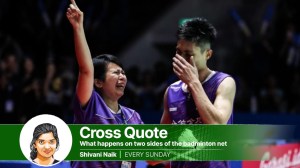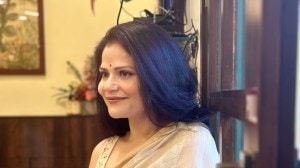Beefy, buffed and bronzed in Busan
The butchest bodybuilders in Asia slip into their trunks, oil their muscles, flex their brawny shoulders and strike a pose.The sport is mock...

The butchest bodybuilders in Asia slip into their trunks, oil their muscles, flex their brawny shoulders and strike a pose.
The sport is mocked by many, but few dare argue the point face to face.
Bodybuilding isn’t a discipline that springs to mind when you mention Asian Games, or any games for that matter, yet it is a medal event at 10 multi-sport carnivals around the world.
It made its Asiad debut in Busan and could soon be an Olympic sport if the International Federation of Bodybuilders (IFBB) gets its way.
They have already submitted an application and with 179 countries IFBB members, the buffed posers on show here could soon be spreading their laterals and tweaking their biceps for a more global audience.
The 94 competitors here from 21 countries have been pumping iron and counting calories for months, sometimes years, in the lead-up and anyone who suggests it is a freakish pasttime is shot down with venom.
“It takes a lot of discipline and training. People sweat to get to competition level,” said Paul Chua, the IFB vice-president for Asia who is known as the “father of bodybuilding”.
Many of the bodybuilders at the Asian Games have spent 10 months preparing, watching their eating habits and working out at least five times a week.
“All walks of life compete — doctors, lawyers, the lot. Those who say it’s freakish don’t know the sport,” Chua said. And there’s no better example exponent than the terminator himself — Arnold Schwarzenegger. The massively successful seven-time Mr Olympia, Mr World and Mr Universe, who took his midas touch to Hollywood, is the icon among icons in bodybuilding circles.
For those in the sport, his name seems to be the definition of manliness, coolness, and action.
“Arnie is very big. Very big indeed among bodybuilders. His name is on everybody’s lips,” said Chua.
So what’s it all about?
According to the International Federation of Bodybuilders (IFBB), it’s all about “muscular bulk, balanced development, muscular density and definition”.
To really be in with a chance you need a “harmonious, classical physique … athletic bearing and correct anatomical structure”.
Well-shaped feet and toes count, but if you’ve got acne, tattooes or a scruffy hairdo then you are finished before you even start.
And of course, you’ve got to be adept at posing.
“It’s a lifestyle,” said Chua, and its popularity is growing.
In China, 30,000 people have been known to cram into a stadium. On the Asian circuit, South Korea, Japan and Singapore are the main players with Vietnam and Myanmar catching up.
They largely shared the gold medals in Busan.
And then there are steroids, long associated with the sport by sceptics who see bodybuilders as relying more on chemists than bench presses.
Chua acknowldges it has been an uphill battle but says much has been done to crack down on drug cheats.
“We have taken very harsh measures to stamp it out and we will not tolerate it,” he said.
Nevertheless, there are still those prepared to swallow a handful of human growth hormones despite the common ailments associated with the quest for a perfectly chiselled body — shrinking genitalia, feminine breasts, chronic liver damage and strokes at an early age.
Iran was banned from the Asian Games for doping reasons while three Yemenis were sent home for failing to submit a report detailing the results of dope tests taken prior to the competition.
Bodybuilding in Asia largely owes its profile to Chua’s efforts to popularise the sport.
In 1983, the Singapore Bodybuilding Federation, of which he is president, had the distinction of being the first Asian country to organise an IFBB Mr Universe in Asia.
The region now has the Asian Pro-Am, the Asian Women, the Asian Masters, and the Asian Juniors Championships.
Photos



- 01
- 02
- 03
- 04
- 05




























